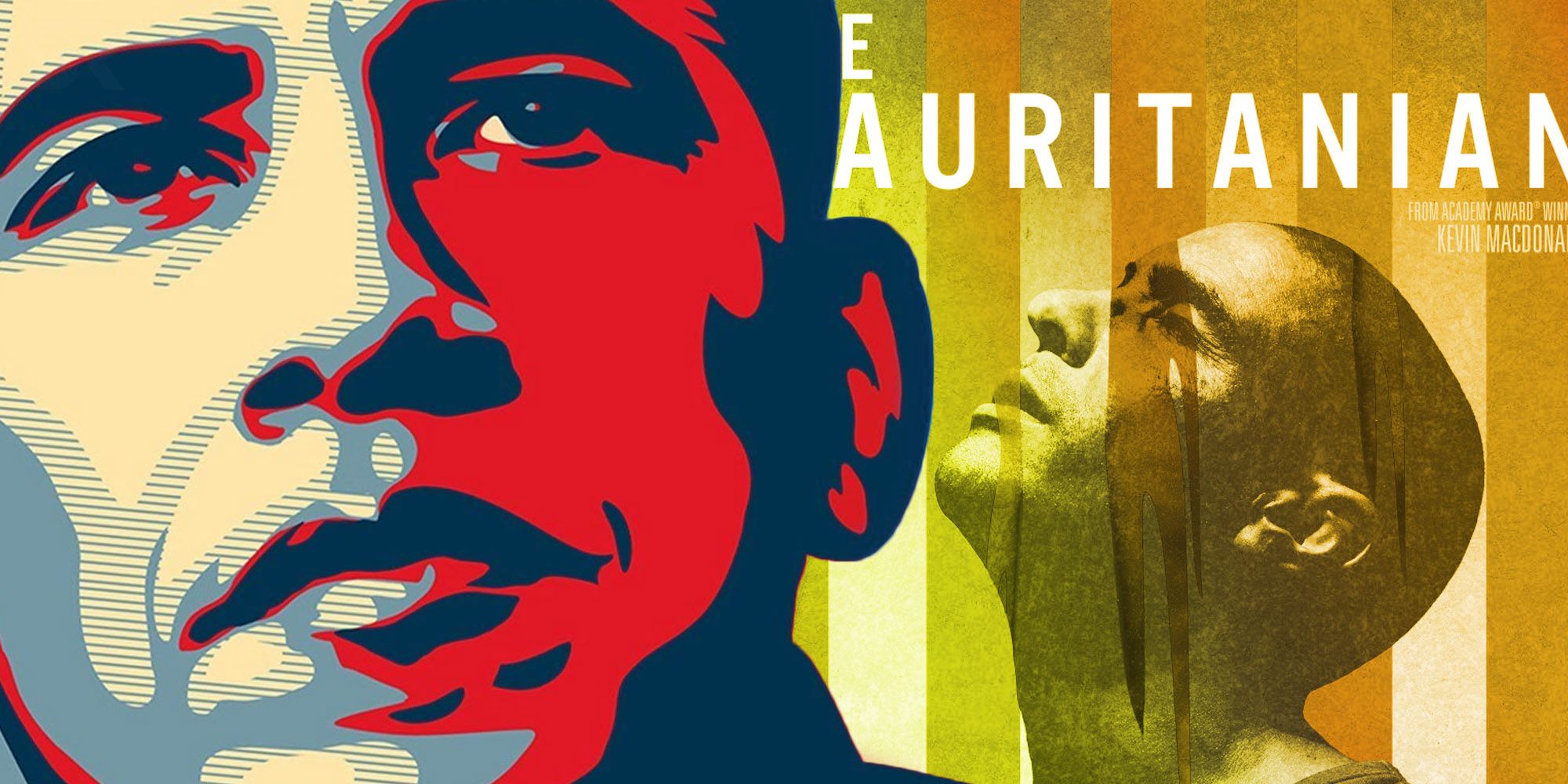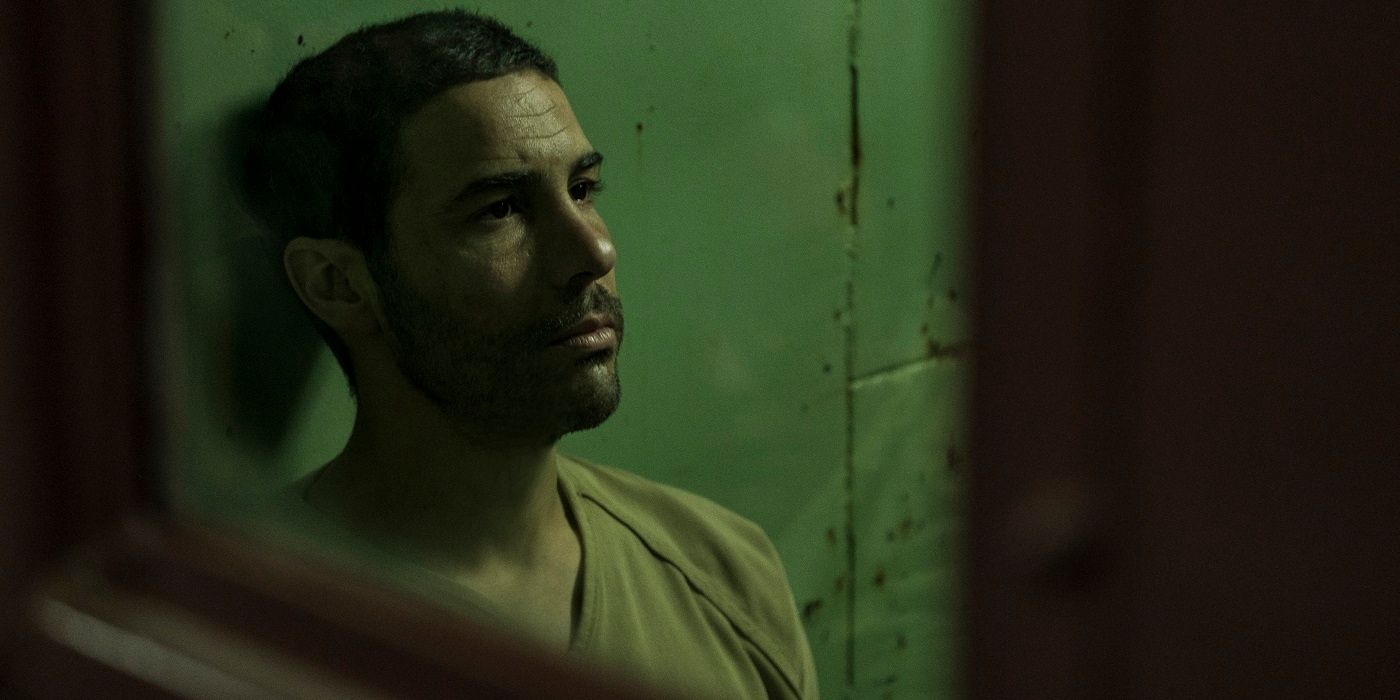
The Mauritanian is stunningly tragic and leaves audiences with a host of questions about how its events were allowed to take place, but another notable issue is why the Obama administration blocked Mohamedou Ould Slahi's release from Guantanamo Bay. The 2021 legal drama follows the true story of the aforementioned protagonist (played by Tahar Rahim), a man who was arrested, taken from his native Mauritania, and held at the infamous American prison for over 14 years. He was officially detained due to what appeared to be prior Al Qaeda connections and the belief that he was one of the main players behind the 9/11 attacks.
Though he was never actually charged with a crime, he still remained at the Cuba-located base for over a decade, and, as seen in the film, has said that he endured unspeakable, black site-esque torture, reminiscent of the techniques uncovered by Adam Driver's character in 2019's The Report. The Mauritanian depicts Slahi being subjected to brutal practices such as sleep deprivation, sexual assault/humiliation, waterboarding, threats against the safety of his family, and more. It's a viscerally uncomfortable watch, as it should be. And even after his dedicated legal team including Nancy Hollander (Jodie Foster) and Teri Duncan (Shailene Woodley) finally get him to speak his truth in front of a judge, the end of the film still informs viewers that Slahi remained in the prison until 2016, despite a federal U.S. judge ruling that there was no basis on which to hold him in 2010. Finding this out, especially after it seems like he was finally going to be free, is a major blow, and conjures up extra disillusionment.
Not only is it unjust for Slahi, his family, and the idea of justice in general, it also begs the question as to why former President Barack Obama's administration – after he ran on a platform that included, among other things, closing Guantanamo Bay – thwarted his release. And just like with much of what's associated with the prison base, the details are hazy. According to the ACLU's website, "Despite the district court’s findings [in 2010], the government continued to oppose his release and filed an appeal in the D.C. Circuit." And it seems to have worsened from there. Not only did the Court of Appeals send Slahi's case back to the district court to take another look through the lens of updated laws, it also denied the ACLU's motion for a review of the prisoner's conditions in 2015. And, of course, he didn't make it home to Mauritania for roughly another year. Unfortunately, this timeline reveals a distinct, bleak truth that many already know (and shows like House of Cards depict so well): often, the world doesn't run on justice, and people in power don't keep their promises.

There is hope and goodness in the world, and The Mauritanian does a great job at blending those concepts into the otherwise horrifying plot well. But life is messy. Many Americans and non-Americans alike believe that Guantanamo Bay should be closed, that using the Patriot Act to surveil and imprison people on suspicion alone is wrong, and even goes against American principles. But, frankly, the optics for releasing Slahi wouldn't have been good. The shroud of fear that has spurred many rash (and unconstitutional) measures is still very real to this day. And freeing a man who was known to have trained at an Al Qaeda–controlled camp and to have come in loose contact with multiple members of the organization (even being adjacent to the likes of Osama Bin Laden), wouldn't look good. Especially with the "never again" mentality that the government and intelligence agencies have adopted since the 2001 attacks.
But still, the amorphous nature of modern politics and threats doesn't negate that there have been--and still--are real people inside Guantanamo's perimeters. And it's safe to assume that most of their stories are eerily similar to that of Mohamedou Ould Salhi. No matter how you spin it, Salhi was egregiously wronged; The Mauritanian plainly shows that. With these kinds of nuanced topics, there's no "right answer," but what happened to him surely wasn't anywhere close to right. Justice was blocked and an administration further enabled a man to be robbed of years of his life.
from ScreenRant - Feed https://ift.tt/3v4IJIO

0 Comments